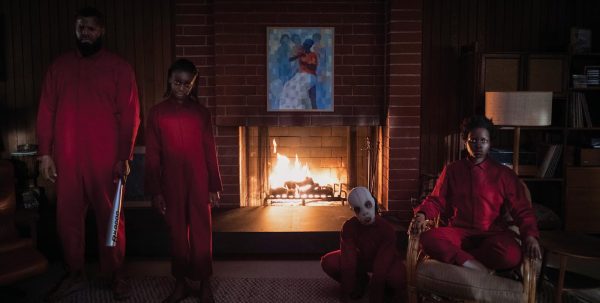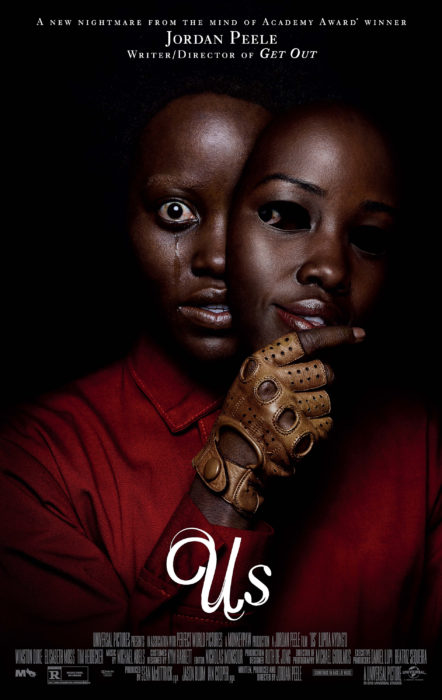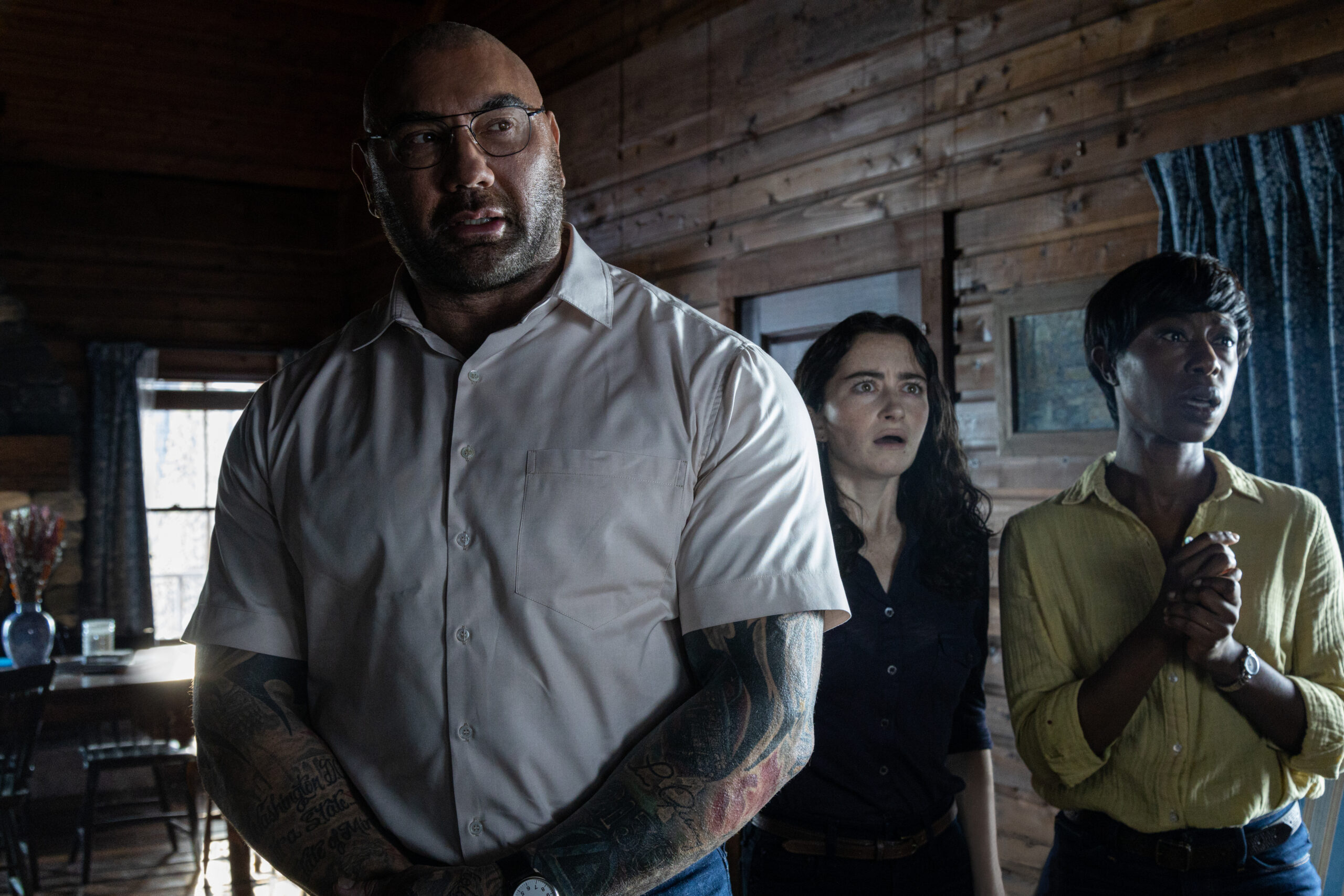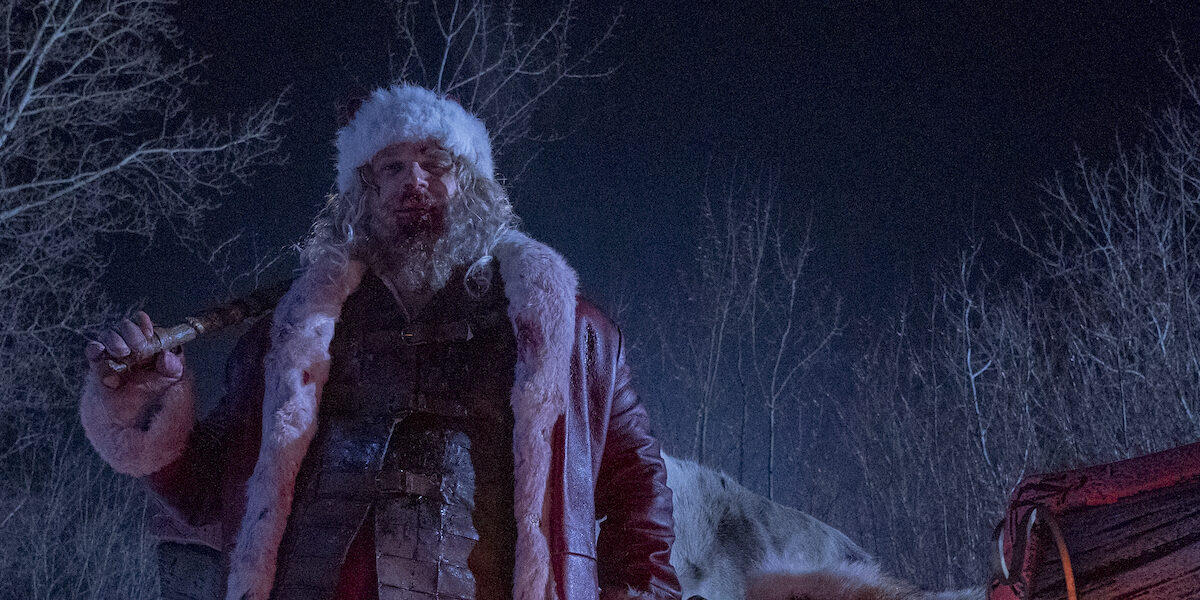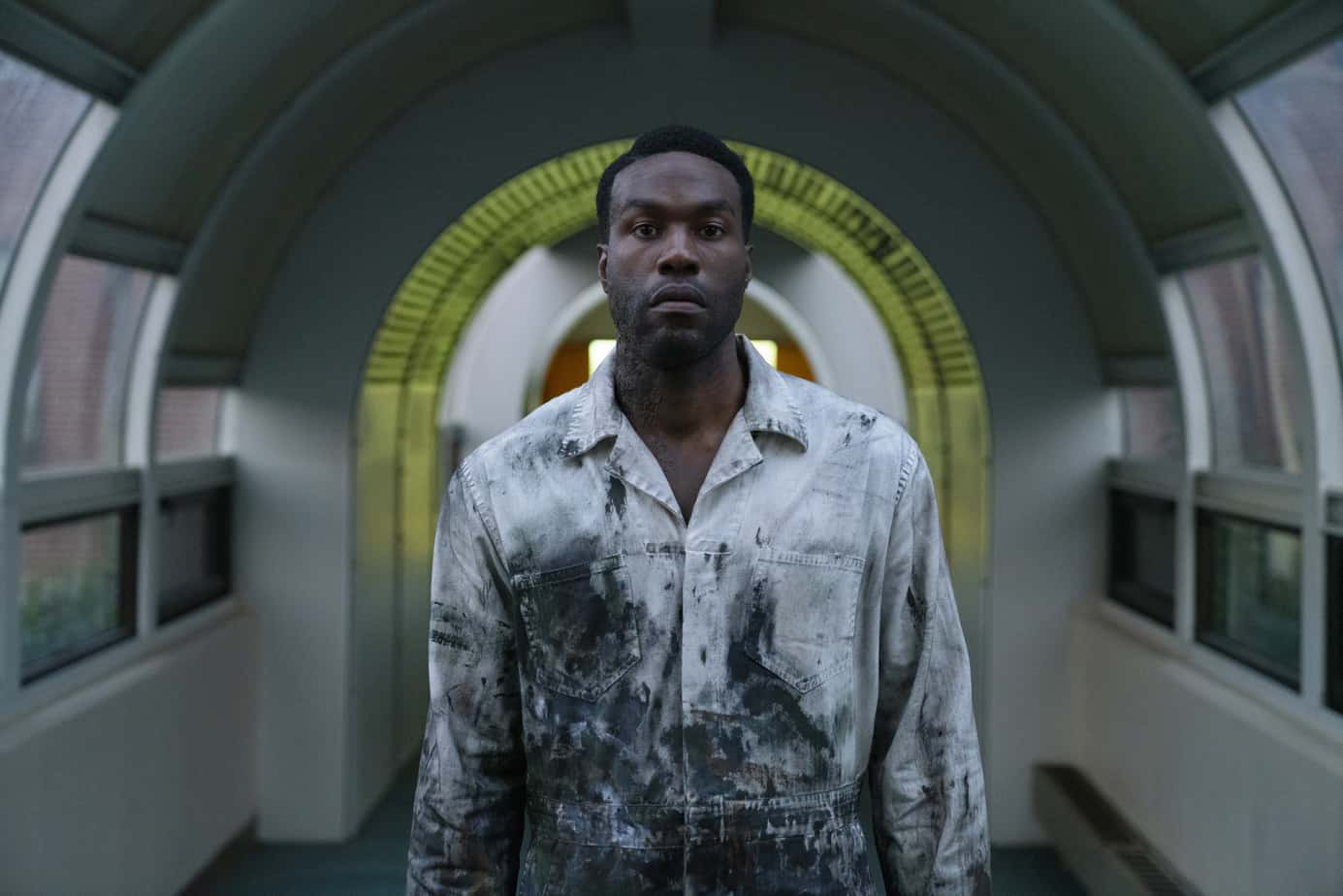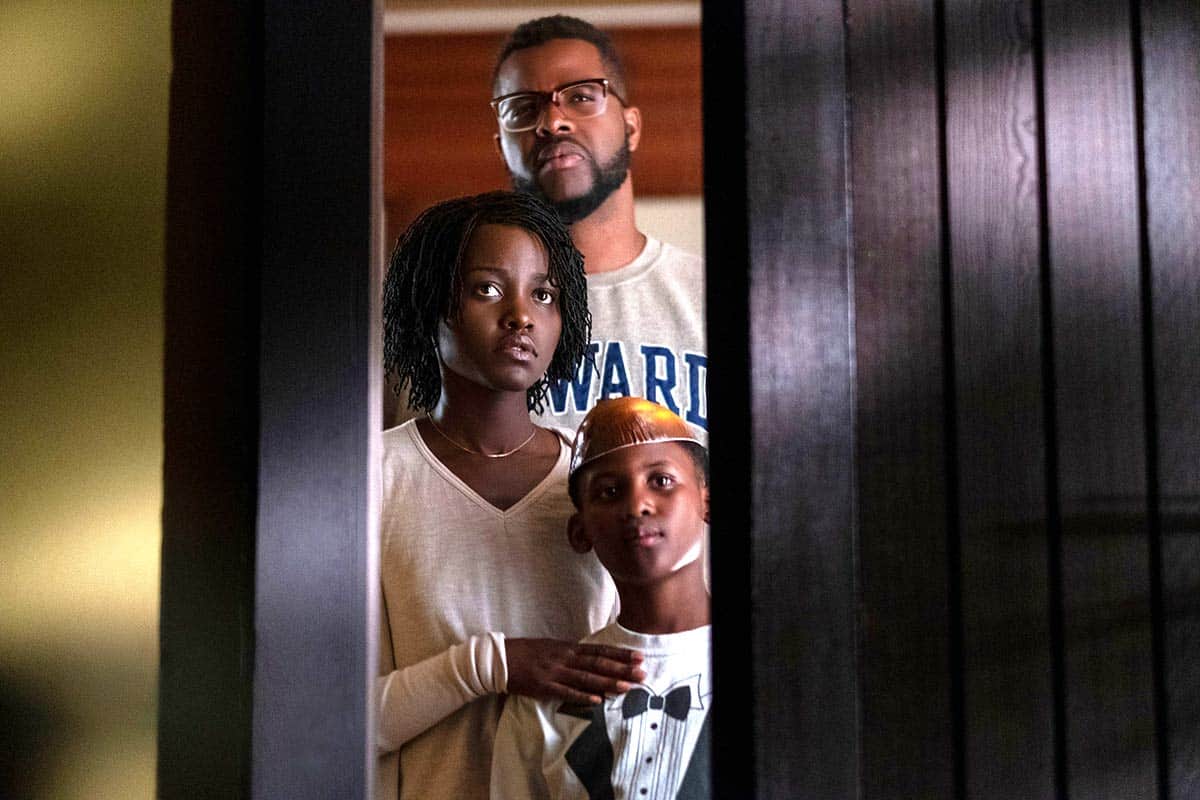
‘US’ Review
After the impact that Jordan Peele’s Get Out left on not just the horror community but film audiences in general, whatever Peele’s follow-up would be is going to be met with ravenous scrutiny. Not only will general audiences be anxious to feast upon the director’s latest offering but critics more-so. The questions of whether Get Out was a one-trick pony or not would be answered in his sophomore effort Us.
[AdSense-A]
The story is simple on the surface (much like Peele’s previous entry). A family heads to a vacation home out in Santa Cruz when one evening they are confronted by a creepy family who look very similar to them. Chases ensue. Things get messed up. Using a basic plot device as a home invasion is the catalyst to deeper meanings in Us. Have you ever thought about who you are? What defines you?
While Get Out was a commentary on judgment and racism with a horror film above the surface, Us is more of a questioning of individuality and actions of neglect delivered through horror tropes. It also feels like a celebration of heady, big-picture ideas presented in 70’s genre cinema even though we begin the film in 1986 complete with a shot of a television showing commercials surrounded by VHS tapes (much like the opening shot from Noe’s Climax) showing titles like The Goonies and C.H.U.D. (the latter combined with the opening statement of the film being a tribute to not only Peele’s genre influence but a wink at context given to the hardcore horror viewer. But even the former is a slight reference as well).
Us is bold, confident filmmaking. Yes, Get Out was my favorite film of 2017. So, I was among the anxious to see whatever Jordan Peele would do next and he did not disappoint me. Us is definitely more divisive than Get Out. Viewers that expect a frightening or scary film may not get that with Us. Peele is holding the mirror up to your face, much like he did with Get Out but with this entry he wants you to dive deeper. He has packed this film with many different layers to make the audience think about many different things. There is definitely more than one topic being tackled here. Individuality, when man interferes with nature, neglect, and interaction with fellow man. Peele doesn’t repeat himself with his commentary about racial divide and ignorance because let’s face it, he did that very well with Get Out. Us is refreshing to most audiences because we are not seeing stereotypical African-American characters in a genre film, we are just seeing characters. Us also isn’t afraid to play around either. In fact, the film was a bit more comical than I was expecting. Unlike Get Out, there is no one character that provides comic relief, the comic relief is in the story and dialogue.
If there is any bad thing to talk about with Us, it may be the twist reveal. It makes sense and the logic lines up but once it is revealed, audiences (including myself) may struggle with it. Mainly because it feels a bit cheap and a little too convenient where it feels like it is trying to hit some sort of quota set by an outside creative force. While it is a fun twist on paper that is very cheeky (and very Twilight Zone-esque), it just doesn’t feel cohesive with what Peele is doing with the rest of the film. Yes, it sets the gears in motion for the “uprising” but some may feel that it is a cop-out.
The last thing I’d like to talk (geek) out about is Michael Abels’s score. Abels previously did the Get Out score which I still think is vastly underrated as it is its own unique score while paying tribute to Bernard Herrmann (who often composed Hitchcock’s work). Abels work here is magnificent and much like Get Out, I hope that we’ll see a vinyl release so I can have it sit with some of the other great soundtracks I own. With most modern horror films relying so heavily on nostalgic synth scores (which I love), it is great to hear a classical orchestra performing for a horror film. Of course, Abels has his own little nuances to make sure his signature is present.
Us is a film that will benefit from repeat viewings (if you are one who enjoyed it on the first viewing) as there are many things to unpack from the film and isn’t as clear-cut as you may think.

